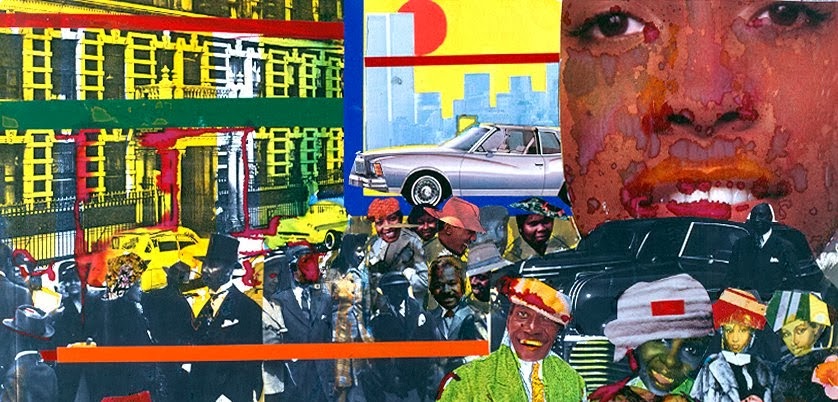From Gravity Comes
the Grief
By Jerry W Ward,
Jr.
There is a language in silence you must use in communing
with the living, the dying, and the dead. Time ordains that you deal with
the gravity and brevity of manifest being. Humility demands that you
accept legacies from word spirits with grace and respect. Time appropriates
words from Amiri Baraka’s 1987 eulogy for James Baldwin, forcing out of your
mouth “the intelligence of our transcendence” and forbidding you to traffic
with bad faith in “retelling old lies or making up new ones, or shaping yet
another black life to fit the great white stomach which yet rules and tries to
digest the world.” Time and Baraka ignore your reluctance to speak and the
dread in your saying the world is not white but pale brown pink. You have no
choice but to close your eyes, open your mind, and let your fingers play
respect for Marguerite Annie Johnson (April 4, 1928 –May 28, 2014).
Baraka smiles at you wisely and says “I know your parents reared you to stay
more in the tradition than that!”
Your mind back flips to an iconic photograph of two people
dancing on a marker for Langston Hughes at the Schomburg Research
Center. That is
your clue. Speak of Maya Angelou. Toni Cade Bambara, Alvin Aubert,
Lorenzo Thomas, Audre Lorde, Tom Dent, John Oliver and Grace Killens, Margaret
Walker, Wanda Coleman, Albert Murray, Louis Reyes Rivera and others and others
nod approval. They give you the gravity of words from which comes the grief and
its resolution. The heart that does not belong to your body pumps words.
You walk in the rivers of glass from Paul Laurence Dunbar’s
“Sympathy.” You feel with Maya Angelou why the caged bird sings, why
inevitably the bird flings its spirit into the limitless cosmos. You regret the
myopia of the New York Times headline that begins “Lyrical Witness of the Jim
Crow South…” Balderdash. There is a Jim Crow North, West, and East, a Jim Crow
Earth. Maya Angelou was the phenomenal woman she said she was.
Birth in St. Louis, Missouri
and death in Winston-Salem,
North Carolina did secure her
temporal being, along with Anna Julia Cooper and Ida B. Wells, a woman of the
South.
But Maya Angelou’s fluent command of languages and her extensive
work as dancer, poet, actress, writer, filmmaker and director, civil and human
rights activist, singer, conscience of the grace that ought to obtain in
earthly life ---all of this made her more than a mere witness to universal
lynchings and human wantonness. She had a more powerful vision. She was the
authority and author what all of us are existentially obligated to witness,
existentially destined to do. As her friend and “brother” Eugene B.
Redmond might put it, we must excavate a heavy lode and lesson ourselves in the
lore she created.
At this moment, it is sufficient that you know Maya Angelou
touched the world with her brave and radiant spirit. Documentation of her
life in biographies, bibliographies, critiques, memorials, and writings
seasoned with womanist theorizing is matter for a later moment. At this moment,
ours is the work of spiritual renewal and creativity. Maya Angelou has
gone, her “blood breath beating/ through the dark green places (Audre Lorde,
“To Marie, in Flight”). Return to the language of silence and find peace in its
embrace.
May 28, 2014
Source: http://jerryward.blogspot.com/2014/05/maya-angelou.html

Source: http://jerryward.blogspot.com/2014/05/maya-angelou.html

A Comprehensive
Bibliography on the works of Maya Angelou
Maya Angelou's Poem
"On the Pulse of Morning"
https://www.youtube.com/watch?v=59xGmHzxtZ4
Maya Moves On to
Higher Ground, dancing with Amiri Baraka
By Marvin X
Dance Maya dance
You and AB cuttin' a rug
so smooth
in tune
flying high
in the Upper Room
Dance Maya dance
swing low sweet chariot
comin' fa da take me home
let her rise now
let her rise now
rise ta touch da sky
see Amina laughin
what a moment
don't take da J out ma joy devil
not in da eternity of things.
Dance Maya dance
poet to poet
something special
Dance Maya dance
no more caged bird
fly black bird fly.
Peace Maya dance
28 May 2014
Oaktown Cali


















